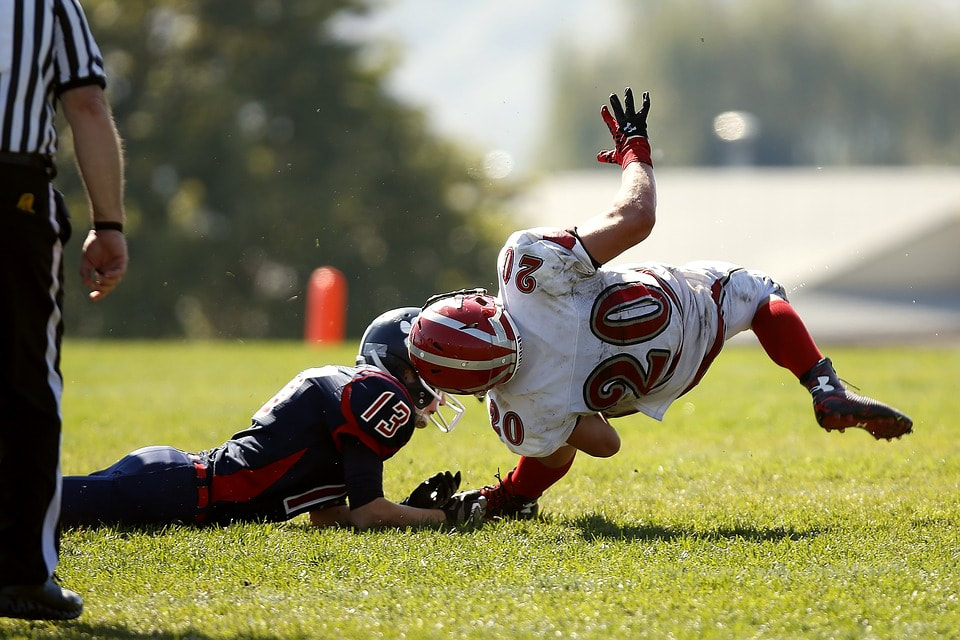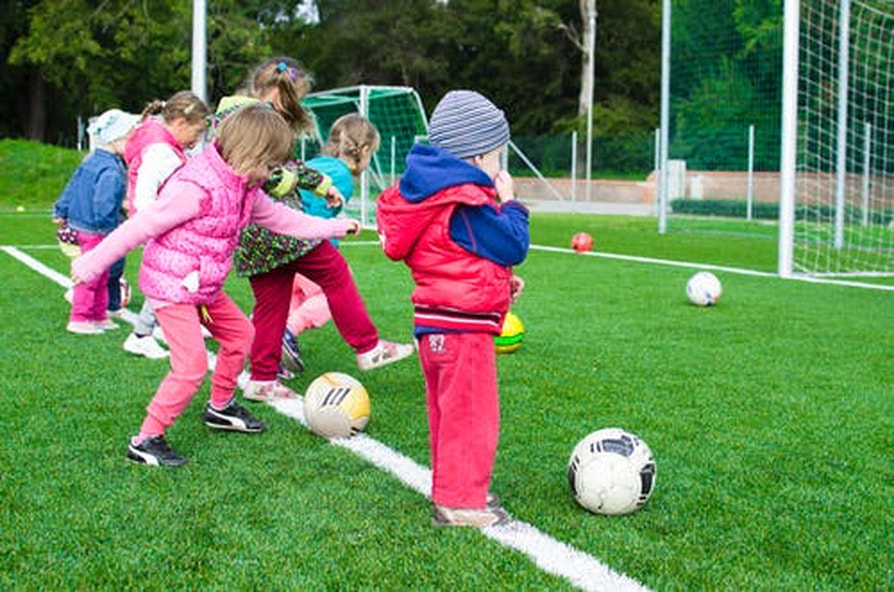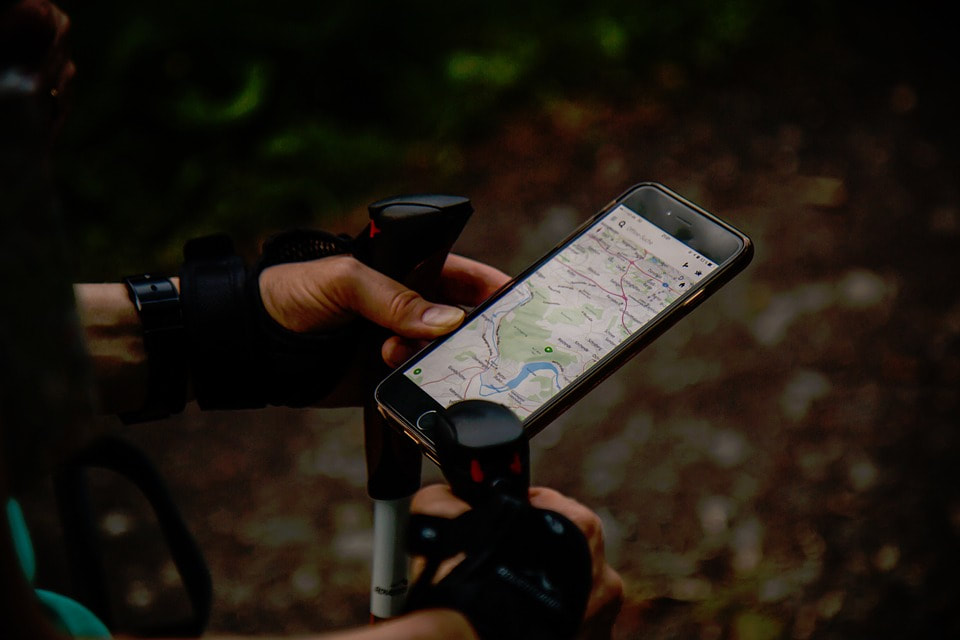|
According to industry experts, concussions are set to be the next wave of significant negligence claims against schools and teachers. Currently somewhere between 20% and 50% of concussions in sports are not recognised nor reported. Basically, most people are flipping a coin and hoping for a good result. This is concerning and consequently a massive risk.
50% to 80% miss rate is something we can and must avoid. The reason being is that students who have an unrecognised concussion and continue to play or engage in further sports activities, are at a much higher risk of a second concussion, which can then lead to a far worse traumatic brain injury and has an extremely high potential for irreversible damage. Since you as the teacher, coach, or activities director have a non-delegable duty of care for your students, you must ensure that you are properly assessing and reporting on head injuries or suspected concussions. Failure to do so, is just the start of the next tidal wave of claims against schools for negligence. Having dealt with numerous concussions over the years as a teacher, we’ve always been mindful of this and are about to release an update to the Xcursion app with the CAT5 Berlin Consensus tool for recognising and recording potential concussions. It’s important to protect both students from further injury and yourself from litigation. Record and report every potential concussion to make sure that every sport and activity is safe and enjoyable for everyone involved. A really interesting resource on this is: Malcolm Gladwell’s Podcast Episode ‘Burden of Proof’ http://revisionisthistory.com/episodes/22-burden-of-proof
0 Comments
I do enjoy a good dystopian fiction, from 1984 to The Hunger Games and Fahrenheit 451. They all describe a future in which society has ‘embraced’ some form of totalitarian government for their own ‘protection.’ As a result, the few in power, control everything and in the case of Fahrenheit 451, technology is one of the key tools which is employed to track and monitor citizens and help restrict the amount of information to which people have access.
Whilst the idea of ‘big brother’ watching is nothing new, I can imagine George Orwell being horrified by the ease with which people have given up so much of their privacy and freedom in the name of ‘safety.’ Why am I talking about dystopian futures in an experiential education blog? Mainly because from what I’m seeing with technology, corporations and governments today, it worries me. I don’t want to sound paranoid, but let’s not forget that it’s not even been a century since the world was brought to the brink by the Second World War and Russia is still feeling the hangover from that horrendous experience. We now have a generation growing up addicted and reliant on devices, through which information can potentially be controlled. With studies showing that social media has been designed to manipulate behaviour, this isn’t a huge leap to the next step of further controls to ‘help’ teens stay ‘safe.’ What happens if our whole experience and existence gets taken online and then filtered back to us with only what marketing, corporations and governments want us to hear? It’s potential for disaster. Whilst I hope this sort of thing will never happen, the risk is however, that it is now far easier to listen to, track calls, monitor online behaviour and develop a profile of someone with predictive behaviour analysis than ever before. If our next generation becomes too reliant on technology for everything, their exposure to potential despotism by stealth, is not so much paranoia, but a scary possible future reality. Therefore, what can we do? For one, keep pushing real experiences in the real world. Help students think critically so they can understand the difference between the fake nonsense of the internet and the reality of the world and teach them how to leverage technology and not be leveraged by technology. If they have a sense of curiosity and are always willing to ask questions and demand reasons why, we can help them to be protected from the dangers of a future in which AIs monitor everything everyone does. With rapid digital change, we have a great responsibility to this next generation to help them build a world that is not controlled by soulless corporations, despotic politicians and softly spoken AIs that want to kill you. Let’s help build a world that’s more Star Trek, than 1984, because at this point in time, both are possible in the not too distant future. Being a teenager has always been hard. You’re no longer a kid, but not yet an adult. Suddenly, you’re thrust into a confusing world full of miss-matched messages and expectations. In the past, this wasn’t as big a deal as it is today, as the outside world crept in at a much slower pace.
Yet one of the enormous challenges for teenagers today is the fact that the world doesn’t creep in slowly. It’s an unmitigated, relentless attack. Children and teenagers are constantly smacked around the head with marketing, social media and masses of uninformed noise around body image, relationships and how to live life in general. Added to this, they don’t even need to leave home to be exposed to this. As a society, our children are spending more time indoors than ever before. Whilst I won’t go into too much detail about this, the reality is that in previous generations, teenagers went out to discover and experience the world for themselves. Some would find suitable amounts of trouble to get into and learn from these experiences. However, now teenagers have the world, or a distorted version of it at least, come to them. Teenagers spend a lot of time in their bedrooms. This has probably always been the case as part of developing a bit of independence from the family. This is nothing new nor unusual, but in the past, the most access to the outside world teenagers used to have in their bedrooms was either the window, or maybe, if they were fortunate, a TV. Apart from SBS movies and crappy late night ads, at the end of the day, most TV content remained quite filtered and so the risk of harm to a teenagers sitting in their room was pretty minimal. However, due to the seismic shift in technology, the difference now, is the fact that a teenager can sit in their room and be directly exposed to all the horrors of the world. The family home is no longer a safe haven from violence, language, sex, abuse, hatred and bullying, all of which, like Jack Nicholson in The Shining are smashing down the door. It’s an interesting phenomenon with this generation and it’s a significant risk for this generation that goes almost unnoticed until it’s far too late. Mental health problems are sky rocketing and teenage suicide in Australia remains at ridiculous levels. In my working in outdoor education, I’ve found an increasing lack of resilience of both boys and girls. As soon as something doesn’t have a quick answer or an easy solution, they go to pieces and either give up or start trying to blame others for their failures. This is a massive problem, because if they can’t do simple tasks, if they can’t complete simple challenges, what happens when they’re faced with a massive challenge with a massive problem? They’ll be unable to cope and totally and utterly fall apart. This lack of resilience and mental strength all starts at home and is manifesting itself in the kid’s bedroom. To help avoid this, ask yourself a few simple questions. How are your kid’s bedroom setup? Do they have a smart device? Do they have a laptop, or desktop computer in their room? Are you running a content filter? Do you know how your content filter works? Do your kids know how a content filter works and how to bypass it? What supervision do you provide around devices? Do you set limits to time spent on devices and social media? Do you even allow them to be on social media? Can you have open and honest discussions about these issues? The problem is, with too much screen time and no filters or supervision, children and teenagers can be exposed to a brutal soulless adult world that can cause long-lasting harm. Software on mobile devices is intentionally designed to be addictive and manipulate behaviour. Would you let one of these 20-something internet CEOs into your house to hang out with your kids? No! That would be creepy, but that’s basically what is being allowed when kids are able to spend endless time on addictive devices. This messes with the natural chemical balance in the brain and can ultimately result in long-term behaviour and emotional problems. In the past, for a teenager to be exposed to the outside adult world, they’d have to physically leave home, go downtown, possibly to a shady less than reputable place to be exposed to all sorts of things to which you don’t want your teenagers exposed. Now, they can be exposed to all of this from the comfort of their own room and you might have no idea that anything is wrong. There’s been this massive shift in the last fifteen years where you have gone from a society in which it was very hard to connect with people, but easy to speak with those you met, to now where it’s really easy to connect with people, but it’s becoming increasingly difficult to connect with real people. That’s a massive cultural shift within a really short space of time. The result of which is that it’s exposed the next generation to a whole host of problems that weren’t there before. With any significant seismic shift, it takes a long time for people to catch up. If you look at education for example, many schools are still trying to come to terms with the fact that what you could do and call education in the 18th century, just doesn’t work these days. However, despite this, with all the massive problems, there are massive opportunities. Once you’re aware of the concerns, it’s easy to start to do something about them. Unfortunately, the massive opportunities to deal with these problems aren’t being addressed and so a lot of educational institutions, a lot of parents are still struggling to catch up after they’ve finally realised the world has suddenly changed. One of the big roadblocks is a parent’s fear of missing out! (FOMO) ‘My child has to have everything that everybody else has otherwise, they’ll miss out on the opportunity... Usually the idea of having everything is about material goods and nothing to do with experiences. The reality is that the more parents freely give stuff to their children, despite the short-term fix this may appear to have, the more likely their children are to really miss out in the future, because they’re socially and emotionally unable to cope with real life and the rapid change that is the reality of the world today. This FOMO has led to droves of parents buying mobile phones for their children, allowing them to become hooked on a highly addictive device and potentially exposing their kids to this massive dangerous world that is totally and utterly unfiltered and soulless. It’s a world into which the teenage mind that doesn’t understand risk, can throw itself in the search of meaning and fulfillment, only to find emptiness and loneliness. Teenagers will find themselves connected with hundreds if not thousands of ‘friends.’ Sadly, the reality is that most of these friends are as real as the tooth fairy, but the more friends or like you have, seems to equate to a higher status or feeling of fulfillment. However, anyone can get friends and likes. You can even buy tens of thousands of followers on Instagram from Russia. None of them are real, but I’m sure it would give you a nice ego boost for ten minutes to have that. Our next generation is desperately searching for real meaning in their lives, yet the irony is that they’re doing it through one of the most shallow, hollow mechanisms possible. They’ve been programmed to need fast actions and fast reactions and, as a result, they want instant gratification. No wonder we’re facing a tidal wave of mental health issues when we have a generation growing up, getting given everything and sitting in their bedrooms exposed to a soulless digital world. Parents who are using devices as pseudo babysitters, are only reinforcing the false expectation of a world where happiness and relationships are simply a swipe away. Whilst so many parents have been focusing on their FOMO for their kid’s materialistic possessions, they’ve totally missed out on the emotional needs of their kids. Despite the amazing improvements technology has provided us, enabling everyone to have the answer to just about everything at their fingertips and watch endless movies of cats falling off tables, the downside is the fact that we’ve created an enormous social and emotional millstone for the next generation and unwittingly hung it around their necks. It’s time we took stock of this, both at home and at school and look at exactly how these addictive devices are impacting on the health and well-being of a generation. The problem however, is not in the device or technology itself. The problem is the disconnect between appropriate parental supervision and real world experiences for children that can enable them to leverage technology as a tool and not let technology leverage them as a consumer. Recently, a Victorian primary school placed a ban on students bringing balls to play with in the playground, citing an increase of injuries as the reason. Whilst I’m sure this isn't the first to ban balls, it's an idiotic and irrational decision to say the least. In terms of managing risk, unfortunately, it’s a sad reflection on a complete lack of understanding of the complexity of education, the need for students to understand risk and take reasonable risks to help them to understand how to actually assess and manage risk.
To put a blanket ban on something such as balls, robs students of some great social play activities. So instead of playing handball, cricket, basketball, soccer or dodge ball, instead bored students look for other less sociable pursuits. Having worked in a number of boarding schools, I’ve seen first hand what can happen when bored students start trying to find their own things to do to entertain themselves. It tends to result in far less social behaviour and can result in bullying to develop purely out of boredom. Consequently, you can stop everyone from doing everything for their ‘own safety’, but you’re likely to create bigger problems than that of balls and a few minor injuries which are just part of life’s knocks and scrapes and are extremely healthy for children to have. Having said that, too many blows to the head with a football might need checking out. The reality is that life’s not free of risks and trying to ‘eliminate’ any form of risk possible within the school environment is ludicrous and only setting students up for more significant failure in the future. Whatever the mistaken belief is for something such as a ball ban at school, it’s counter to any basic educational principles and is failing the students it’s supposedly designed to be ‘protecting.’ The world can sometimes go crazy when it comes to supposedly ‘managing’ risks. Often it’s a knee jerk reaction to an incident that doesn’t take into consideration other longer-term factors or specific incident circumstances. If you end up with a pattern of injures for whatever the activity is, then review it, but look for other options outside of blanket bans. What level of supervision was being provided? What level of first aid training and experience do staff have? Is it one ball activity in particular or everything? Did a teacher get hit with a ball by accident and has now had an hysterical meltdown? Yes things like this do happen. One place I worked had a ban on playing on the grass, because they wanted the place to ‘look nice’, which was never going to happen cause it was built on a misquote infested swamp, but anyway, the ban led to it becoming impossible to adequately supervise students with the staff we had and led to more problems and injuries because the boys spent the whole time spread out over a campus rumbling with each other. This was pure idiocy in my opinion! Before someone throws a blanket ban out there on something fun, sociable and educational with the mistaken belief that they’re ‘saving’ everyone from themselves, then they should consider the wider implications and the potentially far greater negative impact that their decision will have on students. Managing risk is not about banning things. It’s about weighing up a series of competing factors which include the educational value of the activity, the risk of allowing the activity to occur and how it is to be supervised, as well as the risk of taking the experience away from students. Often people mistake the management of risk with their idea that they must stop everything from possibly ever happening to anyone. That’s just pure idiocy and something which fails to take into consideration how children learn from their playtime experiences and how keeping children actively engaged in an activity they love doing, will help build confidence, skills and social skills. Before the fun police get away with banning the next cool activity at school, remember, ‘If you can dodge a spanner, you can dodge a dodge ball!’ Whilst some may think outdoor ed and technology don’t go hand in hand, I would beg to differ on this. I might be somewhat biased having developed my own app (Xcursion) for helping manage student medications, allergies, concussions, medical issues and reporting incidents. However, it’s proven to be an amazing support for when I have a group out in the field with me. It’s saved huge amounts of time, energy and effort, but has also helped me to focus on what’s needed and filter out a lot of what’s not! Consequently, for me, this is now just one of the pieces of technology I use as a force multiplier in setting up and running programs.
What exactly do I mean by force multiplier? This is a term I learnt at uni when I was studying defence. It’s basically a tool, communications equipment or anything that you can leverage to gain a much greater impact versus the size of your force. Despite my many concerns about the use of technology today and the potential dangers it’s brought to people’s ability to adapt and problem solve, that’s by no means a reason not to use great technology. If you already possess skills which enable you to be adaptable when needed, then you’re in the ideal position to use all sorts of technology as force multipliers to help you do your job more effectively, safely and efficiently. Apart from my own invention of the Xcursion app for permission notes, student medicals and pastoral needs, what else have I found useful for running outdoor ed programs? For one, a solid project management system is needed. For most programs, you’re repeating expeditions and need to follow the same structured system each time to make it happen. I use Basecamp by 37 Signals for this. It’s easy to use, you don’t need a lot of project management expertise or experience to get it going. It’s great from an organisational point of view as you can run multiple projects with different people added to each project so you, as director, can see everything, but your group leaders or teachers only see what they need to see for each project to which they’re assigned. Best of all, you can create project templates, so once you’ve built a solid system, all you need to do next time is to create a new ‘camp’ or ‘expedition’ project from the template and all your tasks are loaded ready to be actioned. Another system I like to use, which is more of a workflow platform, is Podio, by Citrix. You can set up all sorts of things from gear and vehicle registers, with automated reminders of when gear or vehicles needs to be checked, services or rotated. Document management systems for filing, tagging and tracking important documents as well as ordering systems, marketing and client relationship management are features. There are some pre-built systems that are available with this platform, but you can always customise this for your own needs. This is again another way technology can be used to create better systems so you and your staff can focus on delivering the programs for the maximum educational benefit and not be focussed on a bunch of required, but essentially repetitive administrative tasks. Sadly, I’ve worked with many people who get needlessly bogged down in all the administrative tasks and have had no idea what’s really important. The other advantage of using technology as a force multiplier, is the fact that it can draw out and highlight key information that can often get lost the mass of data that gets thrown at us. I don’t want to waste ten minutes trawling through files for a key piece of critical information when I can have a system in place so that important piece of data is always at my finger tips. Things such as GPS tracking, Sat Phones and EPERBs are all part of an essential technology tool kit for running effective programs where you can respond quickly and effectively with limited resources. As teachers, it’s vitally important that the focus is always on the educational experiences that can be had. Sure, there’s lots to get done in the background to safely setup and run each of the educational experiences, but through leveraging technology, setting up and running some amazing and memorable experiences is now easier than ever before. If you don’t have systems in place to do this, then it’s time to make sure you get them up and running right now. |
Categories
All
Archives
April 2021
|





 RSS Feed
RSS Feed